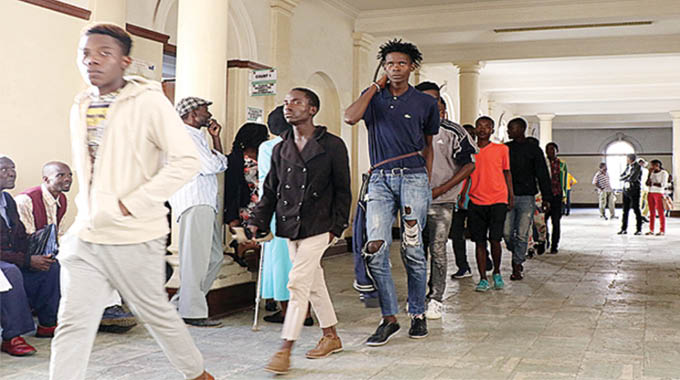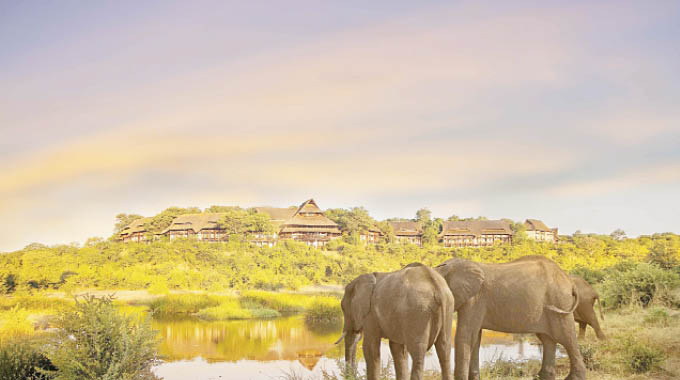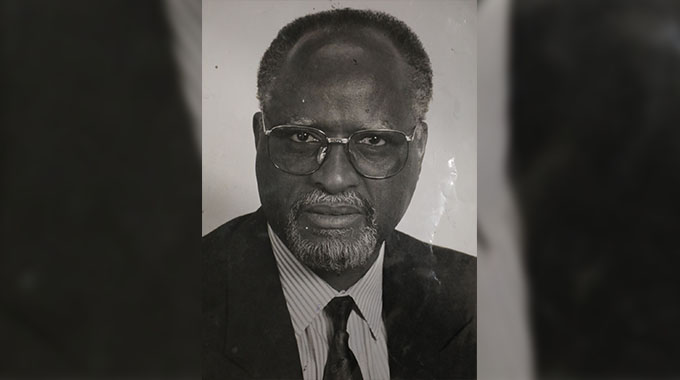Vuzu parties! . . . The philosophical poverty of our time

Father Hlakanipha Mbongolwane
Recent revelations about what goes on in vuzu parties at a forum that was organised by the Junior Chamber International (JCI), Bulawayo Progressive Residents’ Association (BPRA) and the Better Men Foundation are quite disturbing.
However, we need no rocket scientist to explain this. It’s all about the philosophical poverty of our time. We each have our own philosophy, our own personal rule of life. This philosophy comprises a set of beliefs by which we choose to live. These beliefs are probably many and varied. While you may not be able to articulate your personal philosophy, you call upon this “rule of life” many times each day. Every day you make hundreds of decisions. These decisions affect what you eat, what you wear, while others affect the very direction of your life. In every case these decisions are determined by your personal philosophy. Communities also have philosophies. The philosophy of a community is made up of the collective philosophies of its members. A community could be as small as a family or as large as a nation.
Every culture is the fruit of the ideas and attitude of its people. These ideas and attitudes come together in both people and cultures to form philosophies. Although there are many philosophies influencing the modern schema, I would like to propose that there are three major practical philosophies upon which vuzu parties have been born.
The first of these practical philosophies is hedonism. Hedonism is the philosophy that emphasises pleasure as the ultimate goal of life. The motto, the creed, the catch cry of the hedonist is, “if it feels good do it.” Whenever hedonism has emerged as a dominant practical philosophy in cultures and sub cultures it has produced men and women who are lazy, lustful, and gluttonous.
Furthermore, hedonism has been the contributing factor to the demise of every culture and subculture in which it has featured significantly. The Roman Empire is a perfect example. Hedonism is not an expression of freedom; it is a passport to enslavement by a thousand cravings and addictions. And in the end it produces not pleasure, but despair.
The second philosophical mark of our time is individualism. When most people today are faced with a decision, the question that seems to dominate their inner dialogue is “What’s in it for me?” This question is the creed of individualism, which is based on an all – consuming concern for self. No community, whether as small as a family or as large as a nation can grow strong with individualism. Individualism always weakens the community and in every instance it is a cancerous growth. The fruits of individualism are no secret to any of us: greed, selfishness, corruption and exploitation.
Besides, individualism and hedonism, minimalism is the third philosophical mark of our time. The minimalist is always asking “What is the least I can do?” A minimalist is always seeking to exert the minimum effort and receive the maximum reward. Consciously or sub-consciously people everywhere seem to be asking: “What is the least I can do and still keep my job? What is the least I can do and still keep reasonable grades at school? What is the least I can do and still keep my marriage alive? What is the least I can do and still stay physically fit? What is the least I can do and still get to heaven? What is the least I can do…?.” Minimalism is the enemy of excellence and the father of mediocrity. It is one of the greatest philosophical diseases of our time, which has seriously affected young people.
It is within the philosophical realms of hedonism, individualism and minimalism that most people make the majority of their decisions every day. These philosophies are being communicated powerfully yet subtly via every social, cultural and political medium. Through movies and music, literature and fashion, these philosophies have nudged their way into every aspect of our lives. It didn’t happen overnight; it has taken decades. We would have reacted if it had happened overnight, just as a frog will jump out if you drop it in pot of boiling water. But if you put a frog in a cold water and slowly raise the temperature, it will stay in the pot even to its death.
With this in mind we shouldn’t be surprised by the rise of vuzu parties. We shouldn’t be surprised by the radical increase in sexual promiscuity and sex crimes today. It shouldn’t surprise us that corporate fraud has escalated at alarming rates (read the latest Auditor-General’s report). These are the signs of the times, and they are merely the fruits of the philosophies that mark this moment in history. Our own age is one of great philosophical poverty, and as a result we live in an age of tremendous moral and ethical confusion.
Hedonism, individualism and minimalism are not new philosophies. The people who promote them through various mediums present them as new and different, but if we undress these philosophies we quickly discover that the present cultural environment of vuzu parties and corruption is based on failed ideologies of the past. We mistakenly believe that these philosophies are new and different. But if we scratch just beneath the surface and look a little deeper, we will discover that the cultures that first employed these philosophies, or have since adopted them, can all trace their decline to them.
Any community that adopts hedonism, individualism and minimalism, whether that community is as small as family or as large as a nation does so at its own peril. They are ultimately self-destructive philosophies that destroy body, heart, mind and soul. The crisis of vuzu parties, corruption, and many other ills is the crisis of ideas. Ideas shape our lives and the world. Thought determines action. It’s up to us whether we build our Zimbabwe culture on rock, like the wise man, or on sand, like the fool (cf Mathew 7:24-27).
- Father Hlakanipha Mbongolwane is a Catholic priest based at Brunapeg Mission. The views expressed in this article are personal, not the official views of the Archdiocese of Bulawayo or the Catholic Church in Zimbabwe.










Comments